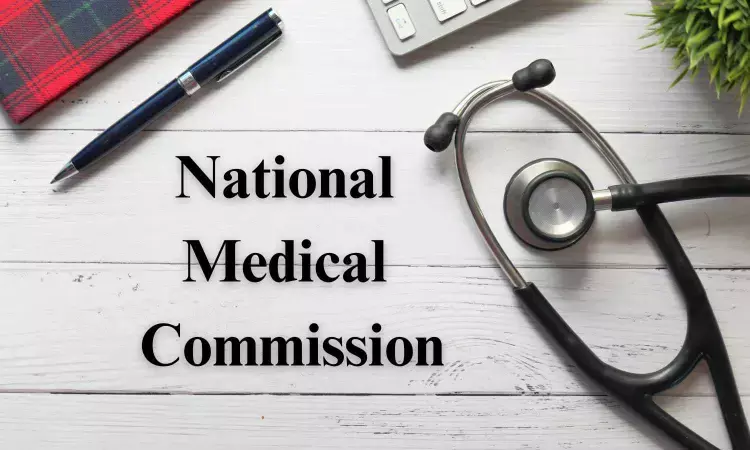- Home
- Medical news & Guidelines
- Anesthesiology
- Cardiology and CTVS
- Critical Care
- Dentistry
- Dermatology
- Diabetes and Endocrinology
- ENT
- Gastroenterology
- Medicine
- Nephrology
- Neurology
- Obstretics-Gynaecology
- Oncology
- Ophthalmology
- Orthopaedics
- Pediatrics-Neonatology
- Psychiatry
- Pulmonology
- Radiology
- Surgery
- Urology
- Laboratory Medicine
- Diet
- Nursing
- Paramedical
- Physiotherapy
- Health news
- Fact Check
- Bone Health Fact Check
- Brain Health Fact Check
- Cancer Related Fact Check
- Child Care Fact Check
- Dental and oral health fact check
- Diabetes and metabolic health fact check
- Diet and Nutrition Fact Check
- Eye and ENT Care Fact Check
- Fitness fact check
- Gut health fact check
- Heart health fact check
- Kidney health fact check
- Medical education fact check
- Men's health fact check
- Respiratory fact check
- Skin and hair care fact check
- Vaccine and Immunization fact check
- Women's health fact check
- AYUSH
- State News
- Andaman and Nicobar Islands
- Andhra Pradesh
- Arunachal Pradesh
- Assam
- Bihar
- Chandigarh
- Chattisgarh
- Dadra and Nagar Haveli
- Daman and Diu
- Delhi
- Goa
- Gujarat
- Haryana
- Himachal Pradesh
- Jammu & Kashmir
- Jharkhand
- Karnataka
- Kerala
- Ladakh
- Lakshadweep
- Madhya Pradesh
- Maharashtra
- Manipur
- Meghalaya
- Mizoram
- Nagaland
- Odisha
- Puducherry
- Punjab
- Rajasthan
- Sikkim
- Tamil Nadu
- Telangana
- Tripura
- Uttar Pradesh
- Uttrakhand
- West Bengal
- Medical Education
- Industry
20 days of Paid leave, weekly offs, reasonable working hours for PG medicos: NMC PGMER 2023

New Delhi: The newly notified Post-Graduate Medical Education Regulations (PGMER) 2023 has specified that post-graduate medical students will get a minimum of 20 days of paid leave (casual leave) per year. Apart from this, under these new regulations, doctors will also be allowed weekly holidays. Further, they will be given maternity leave and paternity leaves as per Government rules and regulations.
There are also provisions for paid leaves for the PG medicos. However, the National Medical Commission (NMC) has clearly specified in the new PGMER 2023 that if a candidate avails leaves more than the permitted number of days, his/her term shall be extended by the same number of days to complete the training period.
Concerning the eligibility to appear in the examination, the regulations mentioned that the candidates can appear in the examination with 80% attendance.
Clarifying that all Post-graduate students will work as full-time resident doctors, the regulations further mentioned that they will work "reasonable" working hours and will be provided "reasonable time for rest in a day".
Medical Dialogues had earlier reported that the final Post-Graduate Medical Education Regulations, 2023 (PGMER 2023), which were published in the official Gazette on 29.12.2023, lay down the rules and regulations regarding admission, counselling, and other details related to the postgraduate medical courses.
Leave Rules for Post-graduate Students:
As per the regulations, the following leave rules will be followed:
a. Every post-graduate student will be given minimum 20 days of paid leave (casual leave) per year.
b. Subject to exigencies of work, post-graduate students will be allowed one weekly holiday.
c. Female post-graduate students shall be allowed maternity leave as per existing Government rules and regulations.
d. Male post-graduate students shall be allowed paternity leave as per existing Government rules and regulations.
e. In addition to 20 days’ paid leave, the candidates will be allowed academic paid leave of 5 days per year.
Further, the regulations mentioned that if a "candidate avails leave in excess of the permitted number of days, his/her term of course shall be extended by the same number of days to complete the training period. However, one shall be able to appear in the examination if one has 80% (eighty per cent) of the attendance."
As per the Gazette notification, the training period for different Postgraduate medical courses shall be as follows:
List of PG Medical Qualifications and Durations:
After specifying the definitions of different terms, the regulations further discussed about different kinds of qualifications and the duration of the courses. According to the regulations, Courses for Postgraduate broad speciality qualifications can be 2-3 years long depending on whether the student has a PG diploma degree in the same subject or not.
"The period of training, including the period of examination, shall be two years for the students, who possess a recognized two-year post-graduate diploma course in the same subject," it mentioned.
The duration for the PG Diploma Course is 2 years, while Post-Doctoral Certificate Courses (PDCC) are only 1 year long. However, the duration for the Post-Doctoral Fellowship Courses is 2 years and DM/M.Ch is a 6-year long course.
List of qualifications, duration of the course and components of Post-graduate Training shall be as indicated below:
S.No. | Name of Qualification | Duration of Course (including period of examination) |
i. | Post-graduate broad-speciality Qualifications (Annexure-1) | 3 Years/ 2 years* |
ii. | Post-graduate super-speciality Courses (Annexure-2) | 3 Years |
iii. | Post-graduate diploma Courses (Annexure-3) @ | 2 Years |
iv. | Post-Doctoral Certificate Courses (PDCC) (Annexure-4) | 1 year |
v. | Post-Doctoral Fellowship (PDF) Courses (Annexure-5) | 2 years |
vi. | D.M./M.Ch. (6 years Course) (Annexure-6) | 6 years |
* The period of training, including the period of examination, shall be two years for the students, who possess a recognized two-year post-graduate diploma course in the same subject.
Also Read: Final PGMER 2023 Regulations released in Gazette, details
M.A in English Barsha completed her Master's in English from the University of Burdwan, West Bengal in 2018. Having a knack for Journalism she joined Medical Dialogues back in 2020. She mainly covers news about medico legal cases, NMC/DCI updates, medical education issues including the latest updates about medical and dental colleges in India. She can be contacted at editorial@medicaldialogues.in.


